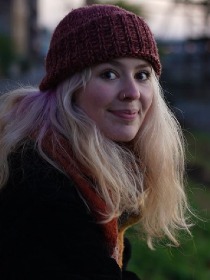Hoe gaat dat? - How to Learn Dutch and How to Apply It

As an expat in the Netherlands, it can be hard to learn the language and then actually get to speak it. Learning is one thing, trying it out is the next - and what do you do if you say “Hoi, mag ik betalen”, but the Dutchie at the supermarket (or insert any other public place) replies in English? Hoe gaat dat you ask? Here are the three most essential steps on how this works.

Step 1: Familiarize Yourself With The Basics
For any language you learn, the first step usually is to learn the basics. The very basics, like Hello, How are you?, My name is…, What is your name? And believe it or not, but that can be enough to have a whole conversation. Depending on how we stress and vary the sound of our articulations and on how we might use gestures, there is a whole lot of information that will reach your opposite and convey what it needs to convey. Why not have a look at some examples:
- Could you give me that WAFFLE? (this is about the waffle, nothing else.)
- Could YOU give me that waffle? (this is about you..)
-
Could you GIVE me that waffle? (this one’s about giving the waffle, nothing else)
- Could you give me THAT waffle? (Exactly that one, not the other)
(If this worked out, you read all the capse words aloud in your head. Gives me joy.)
Or do you remember that scene from How I Met Your Mother where Marshall has an entire conversation with Lily with just one Italian sentence? Lily doesn’t even speak Italian. Since this is about Dutch however, here is a very nice resource for accomplishing step one: Learn Dutch Phrases with Part De Pau. Personally, I am convinced that Bart De Pau is a genius. He has plenty of Dutch comic series on youtube - all his own work - and through those conversations which are in Dutch only but subtitled in Dutch AND English, you will learn a lot. That way you get to listen to the pronunciation and see the English translation right there. You can start and stop at any moment, increase or lower speed. The best part of this? The series is about people that want to learn Dutch and go to a Dutch summer school. Therefore you can expect the vocabulary to suit your starter-needs very well. Bart De Pau actually offers Dutch summer schools, check out his website.

Step 2: Practice!
Step one done? Great, then let us continue with step two: Practice, practice, practice. With real people ideally. Oh, wait. We are in Leeuwarden, so you should definitely find people on Campus that are fluent in Dutch and willing to practice with you. There are also language course offers from the university that are free for students from RUG. Another option is to go to the language cafés (language cafe: instagram, facebook) at the prison, the Blokhuispoort (this used to be a real prison but now it is a very beautiful library and cultural place). Right now the language cafes are still on pause because of the pandemic, but if you keep an eye on their social media channels you should be informed as soon as they open again. Until then, you could perhaps have your very own language cafe with one or two Dutch friends from school. Meet up at a café, or the Beurs even, and praat, praat, praat (talk, talk, talk).

Step 3: Repeat
Here we are, at step three already! Well done, so far. How do you get great at speaking Dutch? This is really more of a mindset-step you need to take to get to a state of fluent Dutch speech (again, this applies for any language learning process). Repeat the steps above as much as you can and try out whatever you know, even if it is just one word. Most importantly though: Don’t be afraid to use the skills you have, also if they are not perfect yet. Perfectionism is great as such, but it will be the biggest obstacle to face when you are learning a new language. Try to turn it around: How would you feel about someone trying to speak your native language with you? It’d be wonderful, wouldn’t it? And you would not judge that person for bad grammar, you’d appreciate the effort they make.
To sum up, a good starter recipe for learning Dutch is binge-watching Bart De Pau’s youtube channel, then trying out what you’ve learned with a Dutch person of your choice, and finally repeating it all over again. While doing that, always keep in mind not to be too hard on yourself and embrace the learning process (that includes making mistakes).
On a side note: Did you know that there is a language called Frisian? Very closely related to Dutch, but better not tell a Frisian person that it’s almost the same. They’ll fight that. Since the number of people speaking Frisian is decreasing, Voice Technology can be used to preserve the language and synthesize it. Synthesizing a language basically means using hours and hours of audio, extracting language features from that audio to then being able to put it together again in the form of an artificial voice that speaks the language. Sounds interesting? That’s one among other things you can learn about in the MSC Voice Technology.
About the author

I am Leslie, and I graduated from the MSc in Speech Technology at Campus Fryslân. Before I studied in Germany which also is where I am from. I’m a language enthusiast and I love music, and coffee.. and ginger beer!

